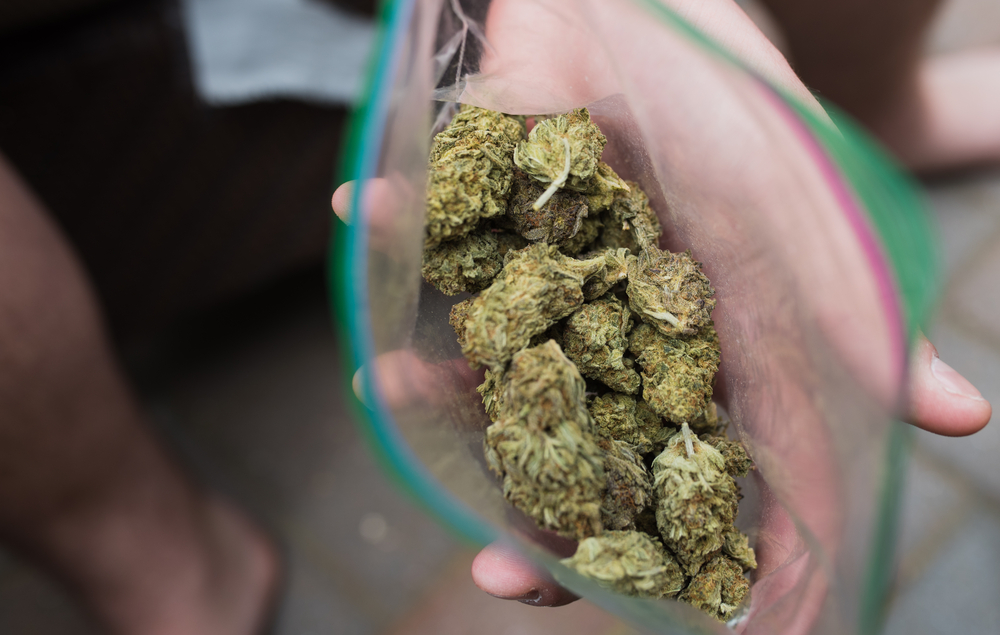Canada News
Federal lawyer asks B.C. judge to toss experts’ reports on medical marijuana

“Because each of these reports has at least two deficiencies, Canada says the entire reports should be found inadmissible.” (Shutterstock)
VANCOUVER — A lawyer for the federal government is asking the B.C. Supreme Court to reject the reports of three doctors and a criminologist she argues are either unqualified or biased in favour of medical marijuana dispensaries fighting to stay open in Vancouver.
Andrea Gatti said the reports solicited by lawyers for dispensary operators should be tossed as Vancouver seeks an injunction to shut down the unlicensed facilities.
“Because each of these reports has at least two deficiencies, Canada says the entire reports should be found inadmissible,” Gatti said Wednesday.
Two of the three doctors practise exclusively in Ontario, and Chief Justice Christopher Hinkson suggested that may be an issue in the relevance of their opinions.
Gatti said the report of Dr. Carolina Landolt, a rheumatologist who operates a medical marijuana clinic in Toronto, makes overarching statements about patients despite her lack of expertise.
The report also fails to include supporting documents on which the court could properly evaluate its admissibility, Gatti said, adding it doesn’t clearly state facts or assumptions.
“She assumes many facts,” Gatti said, adding Landolt includes opinions on street-involved people facing economic barriers to accessing medical marijuana, with no reference to how much experience she has with such patients.
“That makes her an advocate in the sense that the courts discourage,” she said of the doctor’s “strong views” in support of medical marijuana dispensaries.
The Karuna Health Foundation is the lead plaintiff in the case, which includes at least two other dispensaries that are operating without licences in Vancouver.
Lawyers representing the dispensaries say the core issue is that the federal government failed to include medical marijuana users in legislation that will permit recreational users to buy pot as of Oct. 17.
Medical marijuana patients can grow a limited amount of cannabis or get a licence from Health Canada to have someone produce it for them and order it through the mail.
Gatti said Dr. Ira Price and Dr. John Kristensen, who practise in Ontario, also base their reports on hearsay and limited experience while criminology Prof. Neil Boyd of Simon Fraser University in British Columbia appeared to not have understood his role as an expert witness.
However, lawyer Jack Lloyd, who represents some of the dispensaries involved in the case, said while the reports may include some deficiencies, the doctors provided their opinions based on their experience with patients who were prescribed medical marijuana.
He said some homeless patients may not have credit cards or mail boxes where they can receive their prescribed drugs, putting the onus on the federal government to amend regulations that would allow people to walk into a store to fill prescriptions.
Lloyd said Kristensen has practised medicine for four decades and like the other doctors, based his report on his experiences with patients.
John Conroy, a lawyer who represents some of the dispensaries, has said a lack of access to medical marijuana is an infringement of patients’ charter rights.
Lawyers for the federal, provincial and municipal governments maintain a charter challenge doesn’t apply to the dispensaries because they are corporate entities, not private citizens.
On Tuesday, Hinkson granted private-interest standing to dispensary owner and patient James McManus, and pubic-interest standing to businesses Karuna and Weeds Glass and Gifts, which operates stores in British Columbia, Alberta, Saskatchewan, Manitoba and Ontario.





















